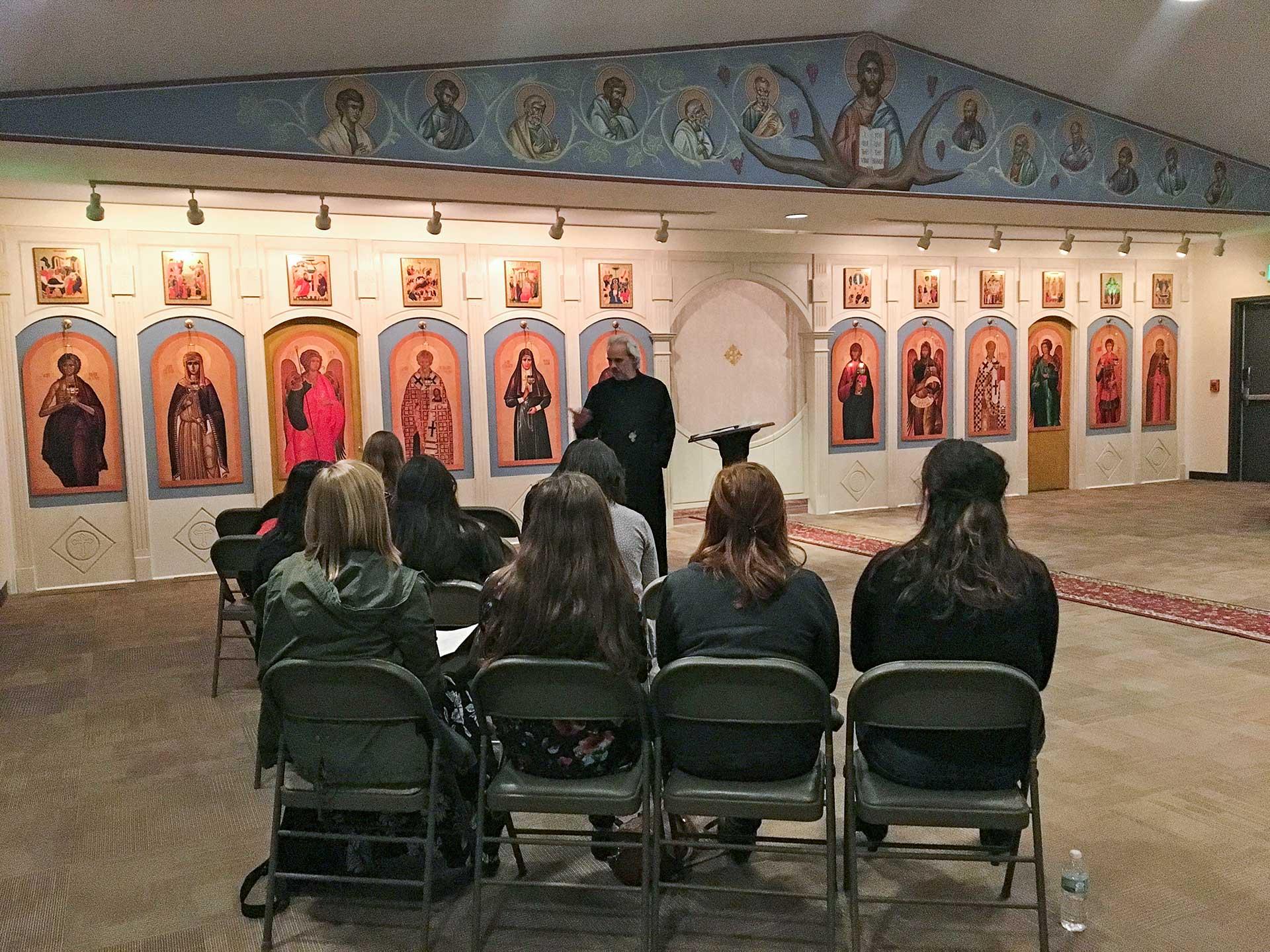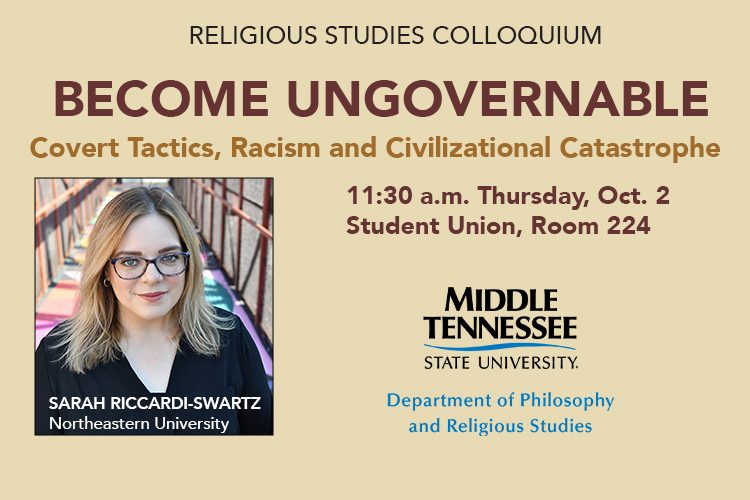
Religious Studies
Discover how religion shapes cultures, influences global events, and impacts both personal beliefs and group identities.
Religious Studies, B.S./B.A.
MTSU’s new Religious Studies degree is the first for a public university in middle Tennessee. The academic study of religion contributes to the wider study of global cultures and international affairs, as well as personal and collective identities. Coursework in Religious Studies prepares students for occupations in a variety of fields, including education, research, religious ministry, counseling, human resources, and marketing. In addition to developing critical thinking skills, religious literacy helps prepare students to succeed in an increasingly diverse and multicultural society and workforce, from jobs as wide-ranging as international business leader to elementary school teacher. MTSU classes include such activities as experiential learning, fieldwork and ethnographic projects, scholarly research, production of short documentary films, independent foreign study, and language training.
News Briefs

MTSU Religious Studies Colloquium to touch on American Orthodoxy, far-right movement
Middle Tennessee State University’s Department of Philosophy and Religious Studies will welcome Sarah Riccardi-Swartz, assistant professor of religion and anthropology at Northeastern University, as the featured speaker for the fall Religious Studies Colloquium.[ Read More ]

Heaven’s Gate, UFO religions expert to headline MTSU Religious Studies Colloquium Feb. 27
One of the world’s experts on the Heaven’s Gate cult will serve as keynote speaker for the Middle Tennessee State University Religious Studies Colloquium later this month.[ Read More ]
News Briefs

MTSU Religious Studies Colloquium to touch on American Orthodoxy, far-right movement
Middle Tennessee State University’s Department of Philosophy and Religious Studies will welcome Sarah Riccardi-Swartz, assistant professor of religion and anthropology at Northeastern University, as the featured speaker for the fall Religious Studies Colloquium.[ Read More ]

Heaven’s Gate, UFO religions expert to headline MTSU Religious Studies Colloquium Feb. 27
One of the world’s experts on the Heaven’s Gate cult will serve as keynote speaker for the Middle Tennessee State University Religious Studies Colloquium later this month.[ Read More ]
Related Media

Religious Studies, B.S./B.A.
A Religious Studies degree provides students with an invaluable foundation for a wide range of careers in which reading, writing, understanding, and analysis are essential.
Employers of MTSU alumni include:
- Tennessee State Parks
- Higher Education Institutions
- Religious Organizations
- Counseling
- Non-profit Organizations
- Law Firms/Legal Departments

MTSU’s Career Development Center
MTSU offers a comprehensive Career Development Center that serves students throughout the full student experience and beyond. They collaborate with faculty and staff to equip students with the tools to be marketable to the world of work and continuing education.
Students can schedule an appointment or check online resources and job boards at mtsu.edu/career.
Students can find current internship opportunities by talking to faculty and visiting the University job and internship board called Handshake.
Wondering what you can do with your major? Check out our What Can I Do with A Major In guides.



CONTACT US
















